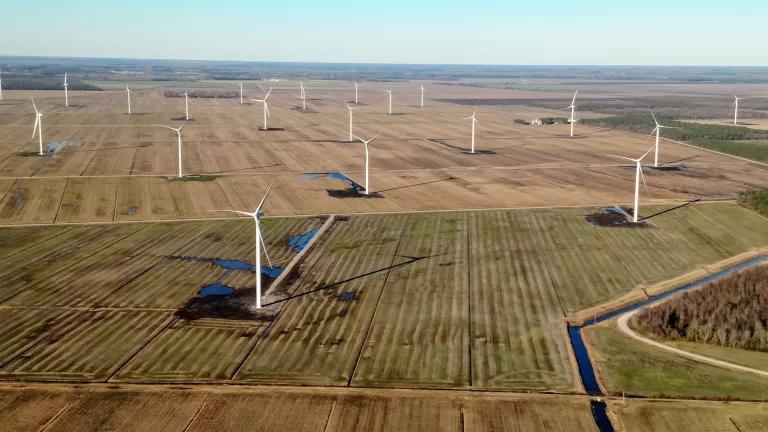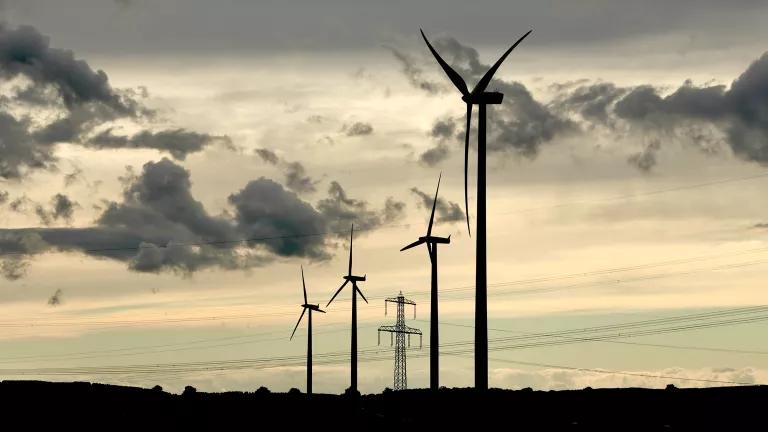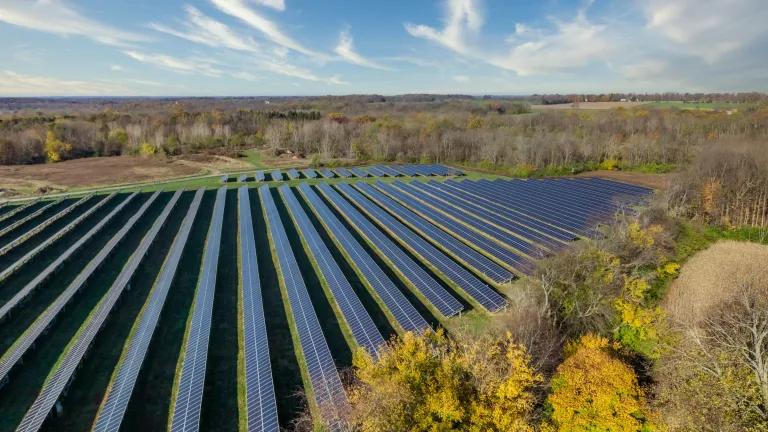
Talk about shooting your state (and the planet) in the foot: Just when pollution-free wind power is starting to ramp up in North Carolina, just as investors are poised to sink hundreds of millions of dollars into proposed wind power projects here, and now that North Carolina is surging in the solar ranks, thanks to large-scale solar development, anti-wind energy forces in the state legislature decided last week to pass legislation that will likely sink these gains. That legislation—HB 589—is a mistake and Governor Roy Cooper, who has until July 30th to veto the bill, should do so, for good reason.
Specifically, the burgeoning renewable energy industry is a boon for our state. It’s that simple. Not only is it lowering the risks of dangerous climate change here in North Carolina, it’s also creating thousands of good-paying jobs, cutting consumers’ energy bills, helping farmers and small agribusiness owners keep land in their families, bringing millions of tax dollars to local governments in some of the poorest parts of the state, and giving our kids cleaner air to breathe. Really, there’s little not to like about the strong growth of renewable energy in North Carolina.
HB 589 includes a poison pill in the form of a complete moratorium on wind power development for a full 18 months, just as that technology is poised to take off here. In February, the 104-turbine Amazon wind farm near Elizabeth City began operations and its developer, Avangrid Renewables, has wanted to expand it by almost 50 percent. Wind farms at Timbermill and Little Alligator are also in development. Together, these projects offer that aforementioned hundreds of millions of dollars in investment but more than that, too: The Timbermill project alone could contribute between $600,000-$800,000 dollars a year in taxes to Chowan County, according to local officials, taxes that can support essential services like education, police and fire protection.
Supporters of the wind energy moratorium, who originally tried to impose a 4-year ban but eventually compromised to get their legislation through, claim wind power jeopardizes our state’s military bases. That couldn’t be further from the truth. Initially, these legislators asserted that wind power put military operations at risk. But since the U.S. Department of Defense and the state already have robust procedures in place to ensure no interference occurs, that claim failed to hold water. Now, like wind power opponents in other states, they’ve settled on the idea that wind power near individual military bases will mean those military bases are at greater risk of closure, even though there is little support for this idea. In fact, the military has a history and proven track record of successfully integrating wind turbines around its bases. Meanwhile, Apex Clean Energy, the Timbermill project developer, says HB 589 “sends a clear signal that wind energy is not welcome in North Carolina.”
Here’s what else is wrong with the legislation: It will significantly change North Carolina’s amazingly successful policies for large-scale solar development, making large-scale solar installations costlier and harder to finance. That, in turn, will make such projects less likely to happen in our state, because developers and investors will probably look for better opportunities elsewhere. Still, a bargain between solar developers and the utility had been reached putting in place a different scheme over the next 45 months. While we prefer to not mess with a good thing, if HB 589 were only a grand solar bargain, we would not oppose it. But including a ‘poison pill’ wind moratorium just as that industry is ready to grow fundamentally changes the value that this bill represents.
All this is bad news for North Carolina’s increasingly important renewable energy industry, which is now growing at a rate far faster than the economy as a whole—by an astounding 31 percent between 2015 and 2016, in fact—in a state that ranks 32nd in the nation for employment. This industry should be valued and encouraged for all that it offers North Carolinians, not used as political football, jeopardizing good paying jobs and investment in our state.
HB 589 is a bad bill for a state that values clean air, good jobs, lower energy bills, strong local government, and a safer climate. Governor Cooper can serve us all by vetoing it now.




